- Home
- Paul Finch
Stronghold Page 2
Stronghold Read online
Page 2
"My lord?" the banneret said.
"Du Guesculin, by my reckoning, there are twenty villages between here and Grogen Castle. Lay waste to them. Torch the houses, scatter the women and children, hang the men and boys. And make a good show of that, du Guesculin - I want gibbets on every hill and every crossroads, each one laden to breaking point."
"Of course, my lord."
"Earl Corotocus, you will pay for this!" the countess snarled.
"Countess Madalyn, we all pay in the end."
Before he left, he made a special example of Owen Anwyl, having his hands bound behind his back, his legs broken with a pollaxe, and then suspending him by the feet from a tree-limb at the highest point of the valley.
CHAPTER TWO
The castles that King Edward built in Wales after his first war of conquest, some twenty years earlier, had formed a stone collar intended to choke the spirit of native resistance. Designed by the master military architect, James of St. George, they were each one a towering, impregnable bastion, a glowering fastness that came to dominate and oppress the land for miles in every direction. Their very names had now become a byword for invincibility: Conway, Ruddlin, Flint, Harlech.
Grogen Castle was no exception.
It stood on the north shore of the River Tefeidiad, right on the water's edge, and was approachable only from the west due to hilly moorland and thickly wooded terrain in the north and east. It consisted of an outer curtain-wall, some fifty feet high, a fortified Gatehouse, a Barbican, a Constable's Tower, and an Inner Fort, the walls of which stood eighty feet. Inside the Inner Fort were the main buildings - the halls, kitchen, barrack-house and the final defensive structure, the Keep. When Corotocus's men first came in sight of Grogen, there were mutters of awe - due as much to its appearance as to its size. In England it had become the fashion for wealthy nobles who owned privately licensed castles to paint them in glowing colours - white, blue or red - so that they shone from the leafy landscape like objects in fairy tales. But King Edward's Welsh castles were different animals. They were military strongholds so bereft of adornment or luxury that the Welsh poet Euan the Rhymer had described them as 'spikes of Hell thrust out through Cymru's fair hide.'
Grogen fulfilled that vision perfectly. It was comprised entirely of grey granite cemented in huge blocks. Its colossal walls and towers were sheer and bleak, and fitted with projecting upper gantries, which were massively crenelated and equipped with swinging timber panels from behind which an avalanche of stones, darts and boiling oil could be launched. Its only windows were narrow slits through which arrows could be shot and javelins thrown.
However, much more of a shock to Corotocus and his men was not the pitiless nature of this fastness, but the many figures manning its awesome defences.
"What the hell is this?" the earl swore, reining his horse at the front of the column. He slammed his visor open. "Du Guesculin, what in Satan's name is this?"
The banneret lifted his wide-brimmed helmet and, shielding his eyes against the early-morning sun, focussed on the figures dotting the top of the curtain-wall and the parapet of the Barbican. At this distance it was impossible to discern who they were, but there were plenty of them and their blades and helmets glinted.
Others of the earl's men now rode up, among them William d'Abbetot, his chief engineer, Captain Garbofasse of his mercenary battalion, and Craon Culai, who commanded a company of the king's infantry attached to the earl's retinue for the duration of the war. They were equally surprised and, having been assured that the castle was theirs for the taking, not a little alarmed.
"Someone tell me what's happening here!" Corotocus bellowed. He rarely allowed himself to get angry in front of underlings, but now he'd lost face. His cheeks reddened, there was froth on his lips. "Did some of Anwyl's dogs stay behind? How could the bloody place have been reoccupied when he only abandoned it yesterday? Someone explain this to me!"
"Why do none of them move?" Culai wondered. A tall, thin man with pinched features, he seemed spooked by what he was seeing, and it was indeed an eerie sight - the figures on the wall were silent and motionless. Too motionless, some might say, to be living men.
"Are they dead?" Garbofasse asked.
"Neither dead nor living," came another voice. Ulbert FitzOsbern, an older knight wearing a red and blue harlequin mantel over his mail, cantered to the front of the column. "My lord, most likely they're scarecrows."
"Scarecrows?" Corotocus said.
Ulbert nodded. "I saw this done often during de Montfort's rebellion. Castles expecting siege but held by only a handful of troops, would create scarecrows - dummies stuffed with straw - and prop them on the battlements. Given an iron cap and a spear each, it looked to all the world as if the place was strongly garrisoned."
Corotocus laughed loudly, partly to conceal his relief. "Of course. That Breton wastrel de Brione only had a few men. When he heard the Welsh were coming, he'd have panicked. Once again Ulbert, we're grateful for your wisdom and insight." He regarded his other lieutenants sternly. "It comes to something when a homeless knight, an errant wanderer who is only with us to pay off his family's debts, provides a solution while the rest of you stand around like frightened children."
They hung their heads, abashed.
There was still, of course, the possibility that this could be a trap. The earl's force might approach the castle's main entrance thinking it safe, only to be struck by a deluge of missiles. So lots were drawn and ten men selected to go forward. The rest of the army, six hundred in total, arrayed itself on the western bluff to watch.
While to the south Grogen Castle was bordered by the deep, broad flow of the Tefeidiad, it was surrounded on its three other sides by a moat, which had been hacked from the living rock on which the fastness was built. This moat was about ten yards across and thirty feet deep. During the spring thaw, mountain streams emptied into it from the north, but at present it was dry and filled with rubble. The only way to cross over it was via an arched stone bridge at the castle's southwest corner. Having managed this, an enemy force would be required to follow the 'berm' path, a narrow footing running between the base of the south-facing curtain-wall and the inner edge of the moat. This turned at the castle's southeast corner, passed alongside the east-facing wall and the north-facing wall, until finally reaching the main entrance, which was set between the Gatehouse and the north-facing wall in the castle's northwest corner. By this time, of course, the enemy would have been subjected to prolonged attack from overhead as it was forced to circle the entire stronghold.
As the ten chosen men readied themselves, donning not just their helms and shields, but additional plating on their elbows, shoulders and knees, the rest of the army waited. Among them were Ulbert FitzOsbern and his twenty-two year old son, Ranulf.
One of the duties the father and son had been given was to guard Countess Madalyn's daughter. Partly of their own volition, but also at the instigation of Father Benan, the earl's chaplain, who thought it unseemly that Gwendolyn should be naked among so many men, they'd loosened her bonds and given her a cloak to wrap herself in. Though streaked with dirt and tears, she sat upright on her pony, taut with anger but determined to maintain her dignity. When Ranulf offered her a drink from his water bottle, she didn't lower herself to reply.
"It's your choice," he said, turning back to the castle.
The FitzOsberns were tall, well-built men. Age had wizened Ulbert's neck and thickened his paunch, but, thanks to countless clashes in battle and tournament, his son was flat bellied, barrel-chested and stout of limb. He had grey eyes and a lean, square jaw. When he pulled back his mail coif, he shook out a mop of sweaty, straw-yellow hair; sure proof that his family - though they'd intermarried many times with Norman stock, hence their surname - had its origins in Saxon England.
Navarre galloped up to them, his horse chopping turf as it slid to a halt.
"The girl rides with the vanguard," he said.
"Why?" Ranulf asked.
"Isn't it obvious? To lessen the chance of attack."
"I thought the idea was to draw an attack... if there's to be one."
"Earl Corotocus wishes to lose as few men as possible, FitzOsbern. But he needs to know what we're facing. With the girl as a human shield, we'll likely draw a non-fatal response."
Ranulf glanced unhappily at his father, who shrugged.
"Ranulf FitzOsbern," Navarre said in a sneering tone. "I wouldn't like to think you were about to disobey Earl Corotocus."
Ranulf handed over the reins. Navarre rode away, leading Gwendolyn's pony behind him at a fast trot. The girl sat stiffly, but now looked frightened. She glanced back at Ranulf and his father as if suddenly thinking them a better option than whatever lay ahead.
"Earl bloody Corotocus," Ranulf said. "Corotocus? Where did he get that name? Doesn't it sound like a demon to you?"
"It sounds more Gaelic," Ulbert replied.
"The Gael people would be insulted... those that haven't been slaughtered." Ranulf's voice tightened with disgust. "I've never seen such savagery as in the last few days."
"He treats his English subjects the same way."
"His English subjects can appeal to the king."
"And would the king listen? You know the law of the March. Men like Corotocus thrive here because the king needs brutes to control the border."
"That doesn't excuse him.
"Agreed. By any standards, his atrocities are perhaps... over elaborate."
"Atrocities to which we're a part, father."
"We're excused, Ranulf. We're here through fealty."
"Fealty?" Ranulf shook his head. "We agreed to pay our debts by fighting for him."
"Which we have done, many times."
"Yes, and which I'll gladly do again. Show me armed opposition and I'll fight it now. But I'm tired of terrorising the weak and helpless."
"You should watch what you're saying, boy," another knight said as he walked by, leading his horse. He was Walter Margas, one of Corotocus's tenants. By all accounts he'd done well in the earl's service, but he was now an old, embittered fellow with watery eyes and a grizzled grey beard. His wore a distinctive surcoat of blue and white chevrons but, with his potbelly and bandy legs, he didn't cut a striking figure. "Rogue knights like you are ten-a-penny. The earl could dispense with you tomorrow, and he wouldn't lose a wink of sleep."
"And as for cowards like him," Ranulf said when he'd gone, "do we really want to fight alongside them?"
Ulbert chuckled. "Would you expect to find Margas alongside you if there was real fighting to be done?"
"Father, this isn't a joke."
"Then you must make it one!" Ulbert snapped, turning impatient.
Despite his mild manner, Ulbert was in his mid-fifties and a battle-scarred veteran. He'd served more lords than he could remember, several of whose reasons for waging war were less than worthy and whose methods of prosecuting it were, in truth, appalling. But he'd learned through long experience that taking a moral view was a waste of energy and emotion - all it would do in the end was prevent you sleeping at night, and in wartime you needed your sleep. Thus far on this expedition he'd tolerated Ranulf's distaste for the earl's techniques, but now he feared that it might bring trouble for them.
"We're in Earl Corotocus's service for a term of seven more years - on oath," he reminded his son. "With luck we'll spend the remainder of those years in this castle, doing nothing more than waiting and watching from our guard-posts."
"Seven years... holed up in there!"
"Some men would be glad. The whole army of Hell couldn't get at us in there." For some reason, Ulbert shuddered at that thought.
Below them, meanwhile, the small vanguard of ten men and one woman proceeded down the grassy slope to the bridge, the earl's gonfalon fluttering above them. Still, the figures on the battlements were motionless. The rest of the earl's host lapsed into silence as they watched. Nervously, the vanguard crossed the bridge, rode around the castle's southwest tower, which was cut with numerous, slanted vents so that missiles could be poured onto the bridge from close range, and advanced along the riverside berm. No attempt was made to interfere with them, and gradually the other troops began to relax.
"So far so good," Ranulf said.
Ulbert didn't reply.
The vanguard reached the far end and, when it turned at the castle's southeast corner, vanished altogether. Long minutes followed, which became half an hour, and then an hour - before a rider returned to view, galloping pell-mell across the bridge and up the hillside.
"It's open, my lord!" he cried. "The main entrance is open! Grogen Castle is ours!"
"And the garrison?" Corotocus shouted back.
"As you said, sir... straw men. Effigies."
"So now it was Earl Corotocus who said that," Ranulf observed.
"Of course," Ulbert replied.
The earl marshalled his host, and, with a beneficent air, led it downhill.
His household retainers rode directly behind him. After these came the royal contingents: detachments on loan from King Edward's own Familiaris Regis - the men-at-arms under Craon Culai, the crossbows under Bryon Musard, and the longbows under Davy Gou. After these marched a Welsh sub-chief called Morgaynt Carew - he and his small group of discontented warriors didn't like the English, but had worse grievances against Madog ap Llywelyn, the architect of the uprising. The tenant knights from the earl's estates followed and then came the men on oath, the likes of Ulbert and Ranulf. At the very rear came Garbofasse and his mercenaries, a motley band of cutthroats and outcasts. They wore few colours, but were heavily mailed and carried a vast assortment of weapons, everything from falchions to mauls and morningstars, from halberds to broadswords and scimitars. Garbofasse himself was a brutish giant, with long black hair and famously disgusting breath. In the twenty villages Corotocus had sacked, it was these men who'd partaken most - burning cottages, raping women, revelling in the bloodshed as if bred to it from birth.
"I'd be happier without these scoundrels at my back," Ranulf grumbled as he steered his horse downhill.
"Better they're on our side than against us," his father replied.
The berm path was an unnerving experience. All the way along it, they were acutely aware of the projecting walk fifty feet overhead, and its many 'murder holes' through which all types of objects could be dropped upon them. The curtain-wall rose like a sheer cliff to their left, its skirted base narrowing the path until only two horses could move along it abreast. With a shallow slope into the river on the right, this wasn't unduly perilous, but when they turned the southeast corner and found themselves alongside the moat, it was a different matter. The column hugged the curtain-wall as it processed. Those on the outside, man or beast, only needed to stumble or slip once and they'd plunge thirty feet onto jumbled rocks.
When they finally reached the castle's main entrance, it was an immense gateway recessed to one side at the end of a deep entry passage. Proceeding down towards it, one could still be attacked from overhead via the Gatehouse battlements or via the curtain-wall, which bounded it on the left. However, the gate itself, a massive oaken structure, faced with iron, was open, and the portcullis behind it had been raised. They rode through, their hooves clattering in the long, vaulted tunnel, and then out and along a timber causeway, which passed twenty feet above the bailey, a yard hemming in the Inner Fort. At the south end of the causeway stood the Constable's Tower. This was a miniature castle in its own right. In shape if not size, it reminded Ranulf of the great Tower erected on the north bank of the Thames, but again its gate was open and its portcullis raised. They rode through, passing along another vaulted tunnel and out into the precincts of the Inner Fort, descending a ramp into the central courtyard where, among many thatch and wattle out-buildings, an entire stable block was located.
With their squires and grooms scampering ahead to provide berths for their animals, the knights and men-at-arms shouted and jostled as they dismounted, the sounds of which ec
hoed to the high ramparts. Only slowly and with much good-natured disorder, did they fall into their separate companies.
Last into the courtyard, moving at a leisurely pace as always, rode Doctor Zacharius. With him came the covered wagon filled with salves and herbs and medicines, driven by his assistant, Henri.
Zacharius, a prized surgeon, was a youngish, clean-shaven man, with long dark hair, green eyes and a wolfish countenance. Even now in the midst of campaign, dressing well was important to him. He wore a blue serge gamache, a brown felt hood with scalloped shoulder-pieces, bright yellow hose and blue, long-toed boots. By contrast, Henri was a pallid, tremulous youth wrapped in a dark, woollen cloak spattered with roadside mud. The general feeling, though no-one knew this for sure, was that Henri was one of the doctor's numerous illegitimate offspring, though in this particular case, given that he was being taught the surgeon's skill assiduously and thus preparing for a career of his own, he was probably the outcome of a liaison with a high-born lady.
"Place is completely empty - no serving wenches, not even a scullery maid," Navarre said, approaching the doctor on foot. He chuckled. "Could be a barren spell for you, Zacharius."
Zacharius smiled as he dismounted. "But at least it will end when I leave this place. When will yours end, Navarre?"
Navarre's cockeyed smile faded. "My lord says you have the pick of these buildings for your personal quarters and your infirmary. If anyone disputes your decision, you have his authority."
Zacharius nodded as if he'd expect nothing less.
Navarre scowled as he turned, leading his horse by its bridle.
"Reached the limits of your power, Navarre?" Ranulf wondered, having just emerged from the stable and overheard. "Again?"

 Stolen
Stolen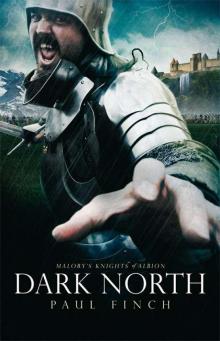 Dark North mkoa-3
Dark North mkoa-3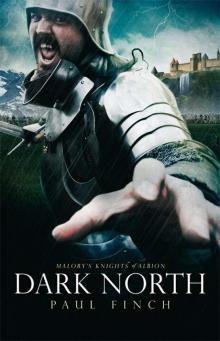 Dark North (Malory's Knights of Albion)
Dark North (Malory's Knights of Albion)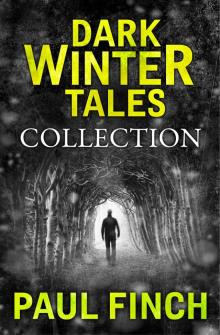 a collection of horror short stories
a collection of horror short stories Sacrifice
Sacrifice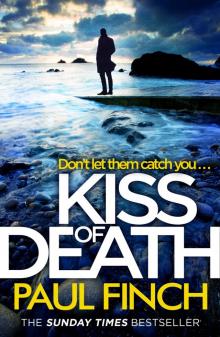 Kiss of Death
Kiss of Death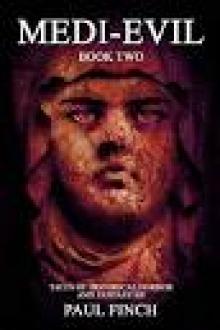 Medi-Evil 2
Medi-Evil 2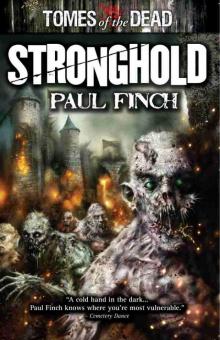 Stronghold
Stronghold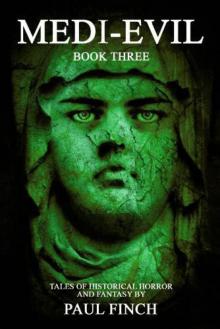 Medi-Evil 3
Medi-Evil 3 Dead Man Walking
Dead Man Walking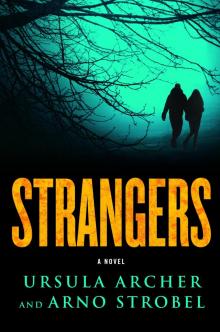 Strangers
Strangers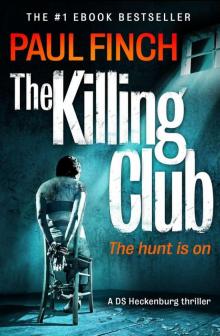 The Killing Club
The Killing Club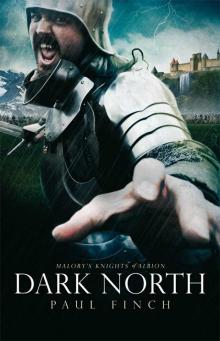 Dark North
Dark North A Wanted Man
A Wanted Man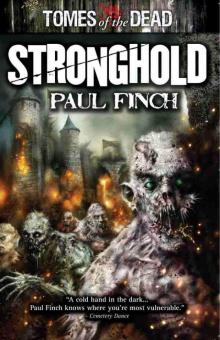 Stronghold (tomes of the dead)
Stronghold (tomes of the dead) Hunted
Hunted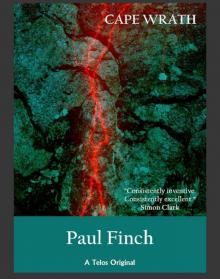 Cape Wrath
Cape Wrath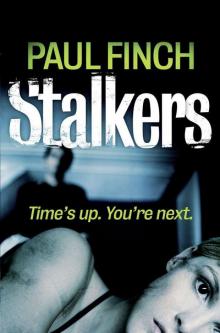 Stalkers
Stalkers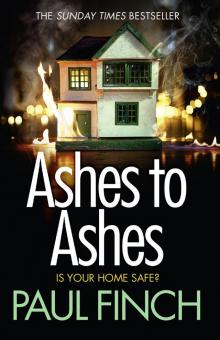 The Burning Man
The Burning Man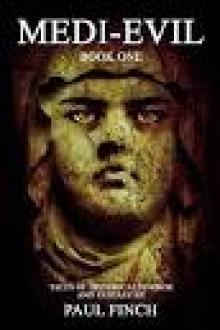 Medi-Evil 1
Medi-Evil 1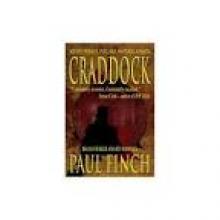 Craddock
Craddock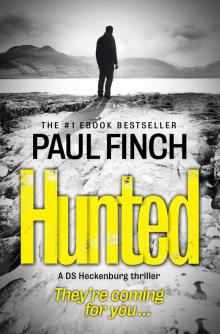 Hunted (Detective Mark Heckenburg Book 5)
Hunted (Detective Mark Heckenburg Book 5)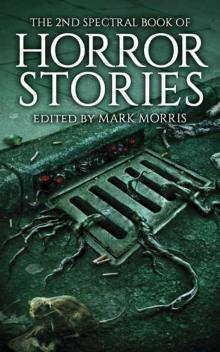 2nd Spectral Book of Horror Stories
2nd Spectral Book of Horror Stories The Chase
The Chase